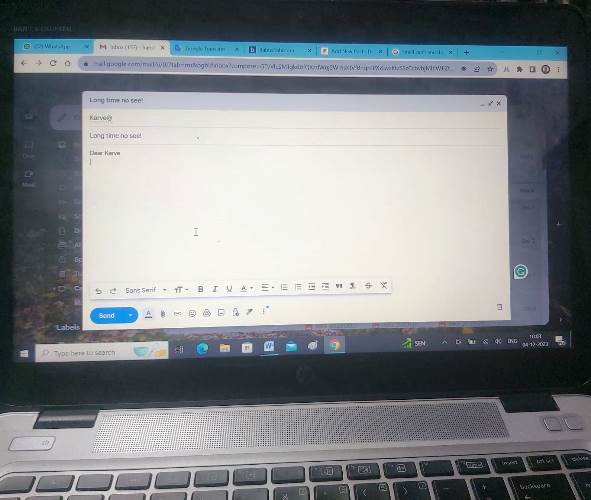
Email can’t end the romance of letters
50: Email can’t end the romance of letters
Did you know that in England, where the modern mail system originated, postage was paid initially by the recipient? I had no idea of this until I read of it in ‘You Can Win’ by Shiv Khera, recently. By the way, I received the book through VPP (Value Payable Post).
So when the recipient paid up, the sum was calculated using a complex formula. Rowland Hill Olater Sir Rowland Hill), the greatest postal reformer in history), never forgot that as a boy his poor mother once sent him to sell a bag of garments to raise three shillings to receive a batch of letters. It was he who devised a scheme of shifting the burden of payment from the addressee to the sender.
This welcome shift, however, came with an unintended twist. When the recipient was paying, the sender had some moral obligation to be extra good to the addressee. With the sender paying, he or she could get away with less courtesy. Something similar may happen with cell phone conversations, now that the receiver is not obliged to share in the talk[1]time charges.
Lytton Strachey, most famous for bringing psychological depth into the writing of biography, would remark, “No good letter was ever written to convey information or to please its recipient. It may achieve both these ends incidentally, but its fundamental purpose is to express the personality of its writer.
In 1840, the first postage stamp was issued. It bore a profile of Queen Victoria (of whom Strachey has a wonderful biography). Some people fretted over disfiguring the royal head in the process of cancellation, but the Queen welcomed the move. She even renounced the royal franking privilege for the pleasure of walking to the local post office from her Balmoral Castle to buy stamps and gossip with the postmaster.
There was a time when a man’s status could be ascertained by how often the postman stopped at his house, now, the whole snail-mail system, as it has come to be known, is dying out. Postal services have to be introduced in attractive stationery on national holidays like Independence Day, Republic Day, Diwali, Dussehra, Rakhi, and Holi to keep this old habit alive; there was romance too in just receiving a letter.
I have my cousin in Stamford, US, who sends along jokes to fifty-nine friends and relatives on his mailing list by email. He often gets the jokes from someone in Boston.
I mean to tell him that many of his jokes escape me, but I have still to figure out how. Over 80 per cent of what I receive in my email inbox is junk. Messages on whether I might like some Viagra, regrow thinning hair, lose weight, or earn while at home!
Frankly speaking, despite the ease of e-mails, I still retain my love for the written word, and the occasional letter. That is why, no matter how technologically advanced, I might get, I will retain my old steel letter opener.






1 Comment
Aseem Aggarwal
Well written
Comments are closed.